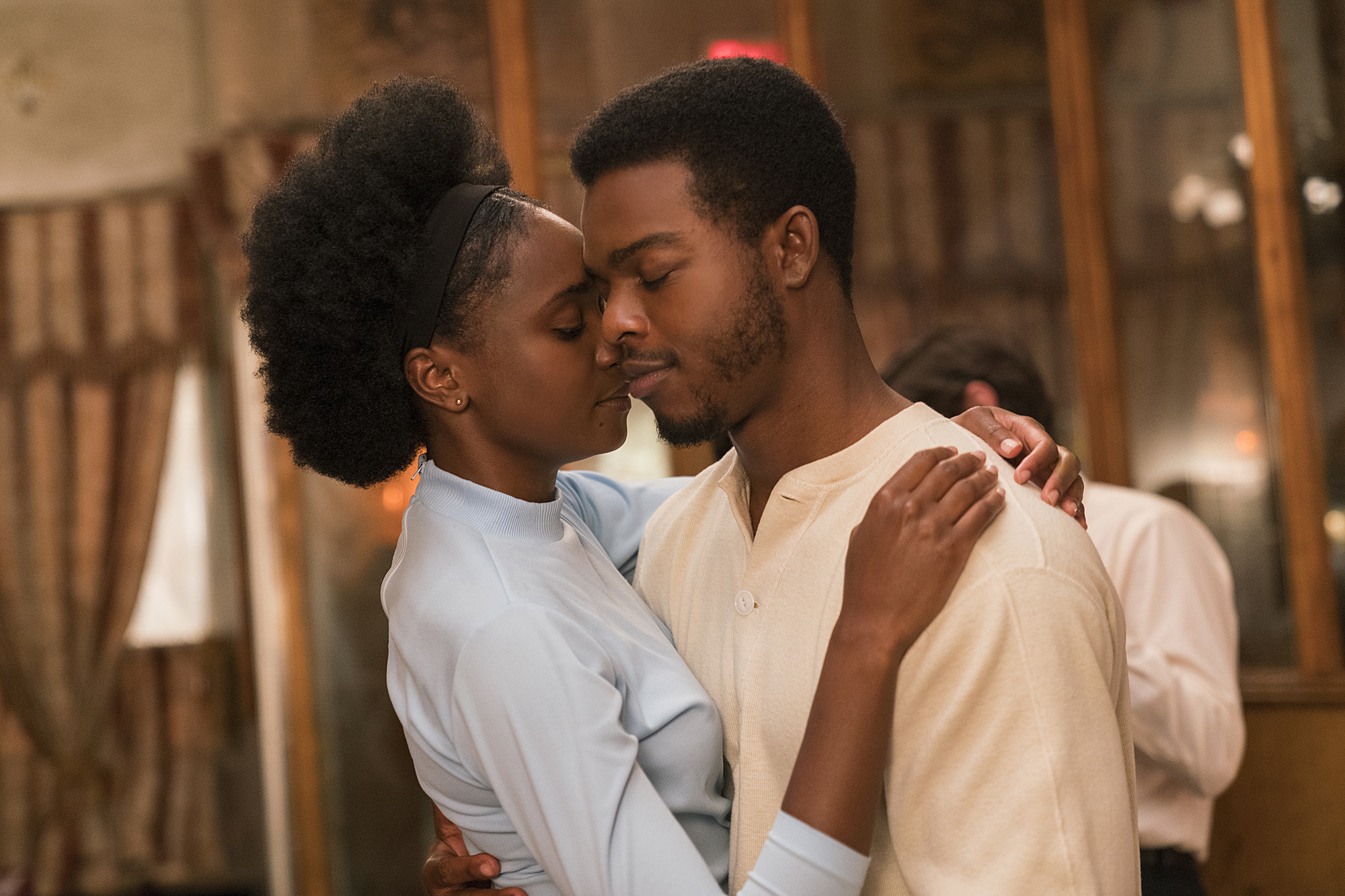Barry Jenkins’ post-”Moonlight” endeavor is “If Beale Street Could Talk,” an adaptation of the seminal James Baldwin novel. Kiki Layne and Stephan James play Tish and Fonny, a young, deeply in love couple looking forward to planning their future together.
Their lives are suddenly upended when Fonny is falsely accused of sexual assault; not long after his incarceration, Tish learns that she is pregnant with their child, so she races against the clock to absolve her beloved Fonny before the baby is born.
At the heart of its story, “Beale Street” is one of many just like it. Black men in the United States have historically and systemically been targeted as perpetrators of whatever crime is in need of a perpetrator. The prison system has routinely locked up young black men for years, tearing some families apart and ensuring that others never get to exist. In an era where mass incarceration is one of America’s worst human rights violations, and one in which assault victims are routinely slandered for naming their abusers, Jenkins handles both issues with a graceful, sensitive touch.
From its start, “If Beale Street Could Talk” stokes raw emotion from across the spectrum. Rage boils up when a sleazy cop tries to arrest Fonny for no reason, and it’s only soothed by Tish and Fonny walking hand in hand, holding each others gazes with adoration, cheeks rounded by sweet smiles. Sometimes that love is tinged with sorrow, like when the two are staring at each other from opposing sides of a glass partition, murmuring through a heavy black telephone.
Other than the visits, you never see or hear what prison is like for Fonny, and the terror of his ordeal can only be imagined or alluded to. Each time he emerges from behind a door to see Tish during visitation hours, his face is increasingly gaunt, or his eyes are sunken with broken blood vessels, or there’s a gash on his nose, or a cut across his brow. Before the accusation changes his life, Fonny reconnects with his old friend Daniel, who’d just gotten out after two years. Daniel speaks about prison like someone is watching him, waiting to pounce and send him back. That may very well be the case.
Kiki Layne is exquisite as Tish, with her poise and bright yellow jacket and kind smile. Tish is fiercely protective and a woman with great passion for her partner’s cause, but also an agent for her own — one in which she can live out a peaceful future with her new love and her child. “If you’re gonna do this,” she tells the young white lawyer who represents Fonny, “you need to be family.” And she means it, because “Beale Street” takes family seriously.
In supporting roles as Tish’s kin is a trifecta of heavyweights: actor and playwright Colman Domingo as Tish’s loving father, recent Emmy winner Regina King as her strong-willed mother and Teyonah Parris as her older sister. Everything King touches turns to gold, and Parris has been doing fantastic work of her own for years (see her in “Dear White People” and “Chiraq,” and on “Mad Men”).
Family plays an immensely important part of “Beale Street” because it’s the very foundation of Tish and Fonny’s love, having grown up together as family friends, and because the film offers dueling portraits of familial love: the kind that is unconditional and far-reaching, and the kind that is based on so many conditions it becomes nearly unattainable. Tish’s family stands firmly behind her in her quest to free Fonny from his imprisonment, but Fonny’s religious mother and sisters are embittered by his predicament and fault Tish for having conceived a baby out of wedlock. No matter who is blamed, their reality is being constructed by powers beyond the family home. “These are our children,” Tish’s father says to Fonny’s, “and we’ve got to set them free.”
It should go without saying, but Jenkins knows how to craft a masterful close-up. He tells an entire story with these intimate shots, making such powerful use of a lover’s gaze that the actors look directly into the camera as though it’s the person they adore most in the world. And all of these feelings reverberate right back onto the audience, where you can feel how madly in love the people on screen are.
But then there are other close-ups, like one of the cop who taunted Fonny outside of the grocer and later condemned him to prison by presenting him as a suspect. These are the same distance from the camera as the love shots, but instead of love you feel vicious contempt and a sense of impending danger swelling inside you. Jenkins channels so much into these brief moments, which are both his signature and his anchor.
Further, Jenkins paints the “Beale Street” canvas with color and texture so rich that we might as well be standing in the same room as its characters. It’s a gorgeous palette, with lush greens, reds and yellows brightening each shot. When Tish visits Fonny in prison she’s dressed in the striking colors of the outside world — a stark contrast to his bleak gray prison garb. It’s another small reminder that the audience will never understand Fonny’s side of the partition, just as Daniel said when he got out.
Ultimately, “If Beale Street Could Talk” intersects with “Moonlight” in its embrace of black male vulnerability, a reality so rarely treated onscreen, with the thoughtfulness it deserves. When Fonny breaks down and begs Tish to get him out of prison, you can feel him losing his mind for a moment, his eyes wild and his desperation vivid. But he’s also vulnerable in tender moments: overwhelmed with emotion at the prospect of having a baby, embracing Tish in flashback when they decide on an apartment, holding her hand even when he’s turned away from her talking to someone else. It’s in these quiet moments that people are most human, and “Beale Street” treats them with reverence.
No, we never know what Fonny’s life is like in prison, but we know that Tish is doing everything she can to get him out, and maybe that’s the part of the story that most deserves to be told. “I’m yours and you’re mine, and that’s it,” Fonny tells Tish. “You’re with me all the time.” “If Beale Street Could Talk” is part American tragedy and part tale of resilience. But it is first and foremost a love story, and an utterly transfixing, poetic one at that.

















